Chronicler Ruins
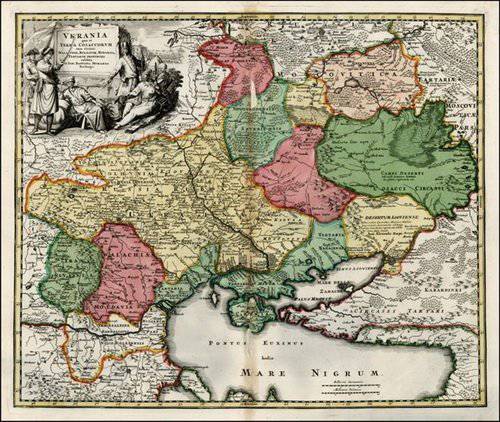
The poem was kept in the papers of hetman Mazepa, from which two lines became widely known: “Prez vg all disappeared, they called themselves” ... Some researchers believe that Mazepa himself was the author. Others claim that he simply rewrote for memory the words of some anonymous adder verses. Be that as it may, the hetman, according to Vasily Kochubey, read this verse to the foreman at closed meetings in Baturin, trying to tune his inner circle to like-mindedness.
The famous poem described that era in the history of Ukraine, which was later called the Ruin:
All peace ischi pragnut
But not in єden the tug of war;
That to the right, that is necessary.
And vi brattya: that is a miracle!
Not mash love, not mash zgodi;
From Zhovto you take the Water
Prez negodu vse lost
Sami called themselves! ..
Sorry, God, Ukraine,
Scho is not a lot of blue!
Єden lives in trash,
Klumet: “Go thou behold!
Іdіm uterus ratuvati,
Do not daimo "die."
Another man for a penny to serve,
According to the interior and the toy ...
Third Moscow Mosque
І Ій вірне service.
That on uterus narikakt
I don’t curse me:
“It’s not maternity,
nezhli in such bіdah life! "
The author of the verse offered to rely on weapon - on the sword, through which, in his opinion, comes the right to liberty. The only problem was that there were much more militarily strong states around Ukraine - Turkey, Poland and Russia. Each of them claimed the steppe country. Therefore, the Cossacks, realizing the limitations of their strength, and dragged them alternately to their aid. It turned out a vicious circle - wherever you throw yourself, on whom you rely on, and everywhere - either death, or loss of freedom.
But if we discard these geopolitical difficulties, the Cossacks were hardest hit not by their neighbors, but by their own discord. People who were self-willed, strolled, valued their own opinions and didn’t give a fool were going to Ukraine. The Polish nobleman, deprived of his rights for murder or robbery, fled to the Sich and became a Cossack. Tatarin, who did not get along with the khan, left his usual life in the Crimea and rushed to seek happiness in a violent Cossack republic. Muscovite, who was fed up with the royal service, joined their company. The Jew, having decided to get the initial capital for his further trading operations, also went to Zaporizhia to join the pirate campaign or raid. And, of course, the Rusins - Orthodox peasants who were threatened with enslavement and work in the field on the pan.
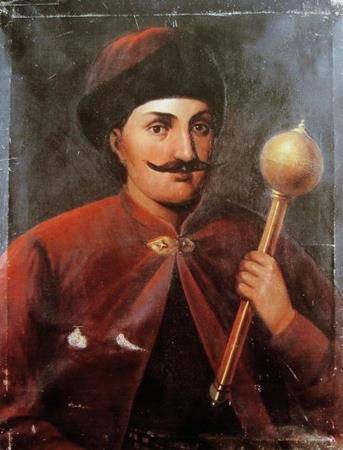
The names of Cossack officers speak best of the origin of their owners. Of the associates of Khmelnitsky, Colonel Dzhedzhaliy was a Tatar, and Krechovsky was a Pole. And this is no exception. Just look at the list of famous foremen of childbirth. Kochubey - Turks. Gercikas, Markoviches and Crossings - baptized Jews. Dragomir - Serbs. The habit of changing the old name with the nickname when entering into the Sich makes it difficult to establish the roots of many Cossacks. But now and then the former genealogical links pop up from under the military "pseudonyms". The surname Litvin testifies that the ancestors of its carriers came from the Grand Duchy of Lithuania and were, most likely, Byelorussians, and the distribution among the current Ukrainians Moskaley and Moskalenkov does not even need comments.
A life full of dangers on the borderland made people hide both thoughts and the past. Therefore, it is so difficult to achieve the truth in Ukraine. Even the name of the most famous historian of the Ruin era is hidden under a pseudonym. Historians know him as a Self-Seer. Who was he? Cossack? Nobility? Representative of the clergy? It is not known for certain. One can only assume, judging by his knowledge and literacy, that the Samovidet served in the hetman's office. Constantly dealing with office papers and the news, he secretly kept a record from everyone. The time was turbulent. There were enough events, as today. So one of the most terrible eras in the history of Ukraine - Ruin - gave rise to one of the most interesting Cossack chronicles - “The Chronicle of the Self-Seer”. Unlike the ceremonial, “correct” works of modern historians, people in it behave like living ones.
This is how the Samovid explains the ruins. In 1657, hetman Bogdan Khmelnitsky died. The Cossacks, meeting in Chigirin for the rada, wanted to supply his son, Yuri, with a new hetman. But since he was small in age, they agreed with the opinion of the General Clerk of Vyhovsky, who offered himself to be the “Acting Hetman”. Vyhovsky took the military seal from Yuras for the time of the campaigns and signed the hetman of the Zaporozhian Forces at that time. According to Samovidts, "Vyhovsky spent the promise of the Kozaks: Pershaya, Zhebi was quiet, who was rozumil neobzlivyh sbi, wipe, the other, Zhebi tear off from the royal majesty, to please the King of Poland."
In other words, the acting hetman began a personnel purge, removing all those who treated him with hostility, and changed the foreign policy course - he decided to transfer Ukraine from Poland to the Polish one.
Probably, Vyhovsky had his own arguments for this. Before the Pereyaslav Rada, which by today's standards can be considered a “referendum”, it was precisely in Poland that Ukraine remained. He wanted to return "to Europe." And that Vyhovsky did not consult anyone, can also be explained. He was the most educated man among the Cossack officers - a former lawyer. And his opponents were, as they say, "from the plow." So he did not put up a difficult question to debate.
But among the Cossacks, an opposition to the new course immediately arose. It was headed by Poltava Colonel Pushkar. Seeing that Vyhovsky had taken the horsetail and the mace from the younger Khmelnytsky, Samovidist writes, he also began to hire the dragoons and Polish banners and that without any elections he began to sign the hetman of the Zaporozhsky Army, Pushkar rebelled. Regiments Nezhinsky and Starodubsky, sent to his pacification, did not begin to fight with their own and returned back. And the hired Polish khorugvi, with the help of which Vyhovsky once again tried to capture Poltava, Colonel Pushkar broke. At the same time, he wrote to Moscow that Vyhovsky "he was bringing together the hetman’s office," and asked the tsarist troops.
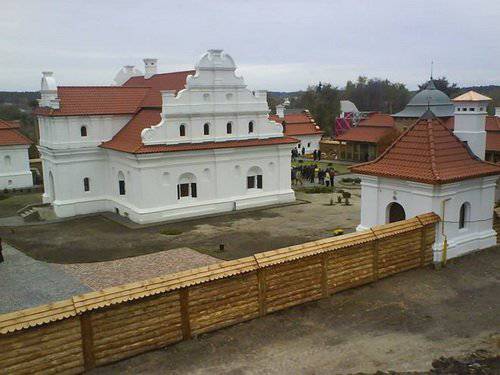
Moscow sent boyar Bogdan Khitrovo to Ukraine. Strangely enough, Vyhovsky very quickly found a common language with him - as the same Samovidset asserts, with the help of flattery and gifts, and convinced that he was not going to go to any Poland. In Pereyaslav, another happy one took place - far less well-known than the one that occurred in 1654. Only the “colonels of the centurions of opells mob” gathered at it. Vyhovsky, with the consent of the Moscow grandee, approved hetmanship. Pushkar tried to thwart this rad and rushed off to Pereslav. But the boyar Khitrovo came to him and “gave away the tutorship from the royal majesty”.
In other words, Moscow was looking for a compromise between the Cossack officers and tried to reconcile it among themselves. But she was so uncompromising in the struggle for power that it was simply impossible to pacify her. Colonel Pushkar and former clerk of Vyhovsky hated each other more than any external enemies. Taking the gifts, the Poltava colonel returned home and “did not want to booty, obedient to Hetman Vyhovsky and Zaporozhtsy, weaned from Hetman Vyhovsky, turned himself to him.”
Typically, the vicissitudes of this first squabble for the club carefully bypass. Vyhovsky is considered a pro-Western supporter. Pushkar - pro-Moscow. Depending on the change in the political situation, then one or the other of them was declared by historians to be "a real patriot of Ukraine."
But pay attention to the characteristic detail, carefully preserved by Samovidtse. Vyhovsky is approved by the hetman of Moscow, to Pushkar the same Moscow gives gifts, so that he agrees with this choice of the Kremlin. He takes the "compensation" and still trying to raise against the new hetman of the Cossacks, insisting on the "undemocratic" election. Like, why was the Sich suspended from the election? Why did the matter decided only by colonels and centurions behind the scenes? A situation is tied up, which will later lead to the tragedy of the Black Rada, in which the Cossacks will force the candidate Ivan Bryukhovetsky to come to power.
And people are all in arms! People are convinced that “the predestine is right,” as will be said in that verse, which the sergeant would quote half a century later, Mazepa, whose youth had just fallen on Ruin. Pushkar does not want to give up. And Vyhovsky does not want to give up. Each of them is stubborn. Can not agree among themselves. Boyar Khitrovo went to Moscow on his Moscow business. Vyhovsky feels unstable. And then he finds what seems to him a “way out” - he sends for help to the Crimean Khan against Pushkar. Khmelnitsky sent to the Crimea when he was going to rebel against the Poles? True, Pushkar is not a Pole. He is his own. But Vyhovsky is not confused.
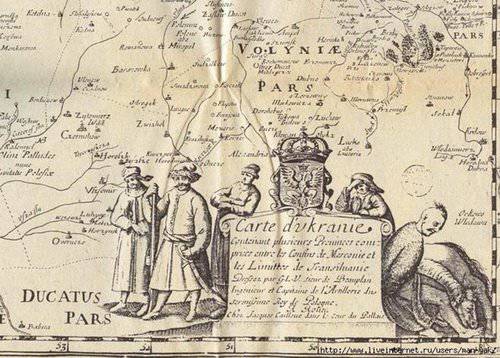
In the spring of 1658, right after Easter, the Tatar army led by Karambey appeared near the hetman's capital Chigirin. Getman Vyhovsky and the leader of the horde gathered on horseback in the steppe for a secret conversation. The samovidet was clearly an eyewitness to this event. In his notes, he even noted that the conversation between the new hetman and the Tatar military commander lasted about two hours (“years of traffic”). Then Murz and the colonels were invited to the tent of Karambey, where they "committed to the city with the Horde."
Only after this, Vyhovsky made his appearance on the territory of the Poltava regiment controlled by Pushkar. Long before the words "Mazepins" and "Petliurists" on the pages of the Ukrainian chronicles the word "Pushkarovtsy" first appeared - to designate one of the opposing groups in the civil war of the 17th century. In addition to the Tatar troops, the hetman led the Prilutsky and Chernigovsky regiments.
First stormed Lubny - the former capital of Prince Vishnevetsky. Then Gadyach was besieged. Here "the kilka of the same Pushkarovites was vystilin". The main battle took place near Poltava. Resolute and hot Pushkar, without waiting for the attack of Vyhovsky, left the city with his Cossacks and Cossacks early in the morning at the Holy Trinity, hit the encampment of the besiegers and “harmata opanov”. But Vyhovsky jumped on his horse, rushed into the Tatar camp and, together with a horde, knocked the attacking Pushkarovites out of the camp, and then cut them off from the fortress. Pushkar died in battle. Most of his supporters laid down their heads. Poltava was taken and ravaged. It was from this sad moment that the era of the Ruins began in Ukraine.
After the victory over Pushkar, hetman Vygovskyy passed into the citizenship of Poland, concluding with her in the famous union taken from Pushkar Gadyach. It did not bring him happiness. Poland helped sluggishly. Moscow declared Vyhovsky a "traitor." Cossacks, dissatisfied with the policies of the hetman, revolted. He fled to Poland and was shot there - also on charges of ... treason! Only now Warsaw, not Moscow.
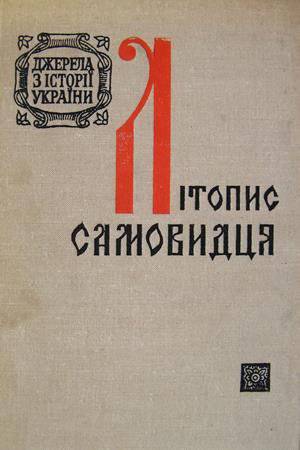
Further events rolled like a snowball. Hetmans replaced each other. On the right bank of the Dnieper sat the candidate of the West. On the left - the East. Often they changed orientation and became pro-Western from the provostochny. Or vice versa. Bryukhovetsky stayed in the kingdom, and then decided to choose Warsaw as a guide. Doroshenko became a Turkish citizen, but, tired of his many years of struggle for power, he surrendered to Russia and ended the days with a Moscow commander.
Ukraine and their own armies devastated Ukraine from edge to edge. Yes, soon no one could say exactly where "their". The Ukrainian Ruin, as senseless and merciless as the Russian revolt, took over the mind. This went on as much as three decades! 1657 th to 1687 year. Although it seems to me that the light of the Ruins is still smoldering in our hearts. I don’t know if anyone will understand this article. But so far I can not understand why it was easier for Vyhovsky to come to an agreement with the Crimean Khanate and Poland than with Pushkar? What a demon lured them?
PS The author of "The Annals of Samovidts" lived a long life. The latest entries in his chronicle date back to 1702. His unsophisticated narration, written in broken, not yet established Ukrainian language, with an admixture of a large number of Polonisms, is the key to understanding the mystery of our history.
Information